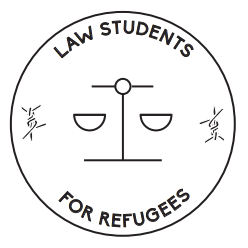|
Vol 12, Issue 12 TILLY HOUGHTON and JAYNAYA DWYER That every person before the Court has the right to representation is a fundamental principle for the legal system—if it is to be a just legal system. But in a democratic society that adheres to the free market, this, in practice, looks markedly different: the resources available to a powerful defendant are in many cases superior to those of the plaintiff seeking the jurisdiction of the Court. We all know this, but as the offers for clerkships come out very shortly, it may be worth re-asking the question: why did you choose to study law? For a great many of you, it was (and remains) to make a substantive difference to society in a way that leaves the world a slightly better place. Perhaps when you started PPL and learned about the extent and limitations of international law, of domestic sovereignty, and of the legislature, the idea of challenging the powers that be became an overwhelming thought. Suddenly, your first fee notice stacked on top of your undergrad fees began to make you anxious, and you recalled that faint doubt you tossed aside that the legal industry is a competitive one for a graduate. Enter the clerkship process.
Now you’re looking through the firms to see who does what pro bono work, and how those sectors align with your own values. The clean, aesthetic graphs breaking down the number of hours and the areas reached give you a sense that it is certainly possible to pay off your debt and get experience and make a positive difference; but make no mistake; it rarely looks like this in practice. A top-tier firm may have done enormously beneficial work for women in the legal industry, or for diversity, whilst simultaneously defending a corporation that has actively contributed to human rights abuses either domestically or abroad. It may have contributed enormous resources to funding mental health programs or wellbeing initiatives, while also providing key counsel for the Commonwealth on matters of immigration. A firm is a firm is a firm, but a firm is a power structure which serves its own interests, and those are usually those of the client with the most money to spend. Yes, it is nearly inescapable—but only to an extent. All of this is information that is publicly available to anyone who wishes to find it. It is unreasonable to expect that any law student with a potential graduate position on the table disregard it solely because an enormous firm with hundreds of solicitors may have acted on a case that is against your moral position. However, it is equally as unreasonable to expect that just because a law firm does pro-bono work, that it is immediately absolved of the other wrongs it perpetuates. Remember why you got into law in the first place, and ask yourself if you’re really, genuinely happy to be in an environment where that is a nominal at best part of the work that you will be doing. It is understandable that at this point in semester we aren't in the practice of putting time aside to contemplate our moral limits. Any offer you get this week is a product of a lot of hard work and should be celebrated. Please don't forget, however, that you are promising, intelligent, capable, thoughtful- and even marketable—and that the decisions we collectively make regarding how we want our careers to play out as we leave MLS will shape the legal landscape in this country. Taking back agency in this wild process means noting the following in relation to the firm you are 'considering' an offer from: are they are currently representing a client or cause that you find to be morally dubious? You might have to do a little digging. They probably didn't boast about it at the interview or on the page of their clerkship brochure opposite their pro bono program. Taking back agency might look something like this: Make a list:
We wish you the best of luck when offers come out. We also hope that your career, whatever you envisage it to be, is one that you have actively shaped not according to the perceived successes of working in a particular firm or area, but through your own reflection on your values, your ideals, and your commitments to justice. Tilly Houghton and Jaynaya Dwyer are second-year JD students, this article is written in their capacity as committee members of Law Students for Refugees More articles like this The rest of this issue (:O) Comments are closed.
|
Archives
October 2022
|



